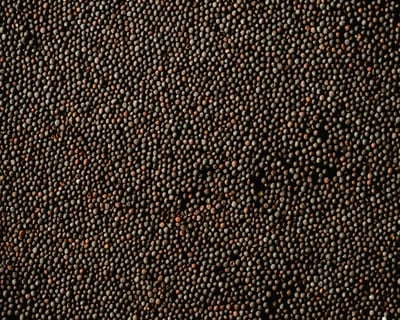Mustard, with its sharp bite and vibrant color, is a spice that punches far above its weight in the culinary world. Derived from the seeds of the mustard plant (Brassica family), its history stretches back millennia, gracing ancient Roman tables and becoming a staple in Indian kitchens long before its widespread adoption in the West.
The tiny seeds themselves come in various hues – yellow, brown, and black – each offering a subtly different intensity. In Indian cooking, whole mustard seeds are a fundamental element of "tadka," crackling in hot oil to release their pungent, nutty essence, forming the aromatic base for countless curries, pickles, and vegetable dishes. Ground mustard, on the other hand, provides the sharp kick to condiments and marinades globally. Beyond flavor, mustard boasts health benefits, including antioxidants and anti-inflammatory properties, and is a good source of selenium and magnesium. From its humble origins as a wild plant to its indispensable role in kitchens worldwide, mustard remains a testament to the power of a tiny seed to deliver immense flavor and character.
Mustard is known by various names, reflecting its widespread cultural integration:
Hindi: सरसों (Sarson)
Marathi: मोहरी (Mohari)
Malayalam: കടുക് (Kaduk)
Kannada: ಸಾಸಿವೆ (Sāsive)
Mandarin Chinese: 孜然 (zī rán) (tsee-RAN)
Spanish: Comino (koh-MEE-noh)
Standard Arabic: كَمُّون (kammūn) (kam-MOON)
French: Cumin (koo-MAN)
Portuguese: Cominho (koh-MEE-nyoo)
Russian: Зира (zira) (zee-RAH) or Кумин (kumin) (koo-MEEN)
Arabic: "mustard" is خَرْدَل (khardal)
Here are some of the key health benefits of mustard:
Rich in Antioxidants: Mustard seeds contain powerful antioxidants like glucosinolates, isothiocyanates, sinigrin, sinapic acid, and carotenoids. These compounds help combat oxidative stress in the body, protecting cells from damage caused by free radicals, which can contribute to chronic diseases and aging.
Anti-inflammatory Properties: The active compounds in mustard, particularly glucosinolates and omega-3 fatty acids (especially alpha-linolenic acid - ALA), exhibit anti-inflammatory effects. This can be beneficial for conditions like arthritis, muscle pain, and various inflammatory diseases. Topical application of mustard oil is traditionally used for relief from joint pain.
Skin and Hair Health (Topical Application): Mustard oil is commonly used in traditional practices for massages. It is believed to improve blood circulation, provide warmth, and nourish the skin and hair due due to its vitamin E and healthy fatty acid content. (Note: Pure mustard oil can be a skin irritant for some, so a patch test is recommended before extensive topical use).
Mustard Seeds (Whole): This is the most common form. Grading focuses on:
Variety: Yellow Mustard (Brassica alba/Sinapis alba), Brown Mustard (Brassica juncea), and Black Mustard (Brassica nigra). Each has different flavor profiles and uses.
Purity: This is paramount. Graded as 99.5% Purity (Sortex Clean / Premium / Europe/USA Quality), 99% Purity (Superior / Gulf Quality), or 98% Purity (Standard). Purity refers to the absence of foreign matter.
Foreign Matter: Any non-mustard material (dirt, stones, stems, other seeds). Strict limits are applied, often less than 0.5% for premium grades.
Admixture: Specifically, the presence of other types of seeds (e.g., charlock, rape, other Brassica species).
Moisture Content: Typically 8-12% maximum, crucial for preventing mold and preserving quality.
Damage: Percentage of shriveled, broken, immature, discolored (e.g., distinctly green, blotched), or insect-damaged seeds.
Size: Uniformity in size, often specified as "bold" or "small."
Color: Consistent color for the specific variety (e.g., bright yellow for yellow mustard).
Odor and Flavor: Must be characteristic, strong, and pungent, free from off-odors (musty, rancid).


Mustard
Medical Disclaimer
This information is for general knowledge only and isn't medical advice. It's not a substitute for professional medical consultation. Always consult your doctor or another qualified healthcare provider with any health concerns or before starting any new treatment.
Services
Exporting quality Indian spices, oils and trade services.
© 2025. All rights reserved.
contactusgtsi@gmail.com
Coming Soon
GST NO: 27abcfg5560a1ZR IEC : abcfg5560a
